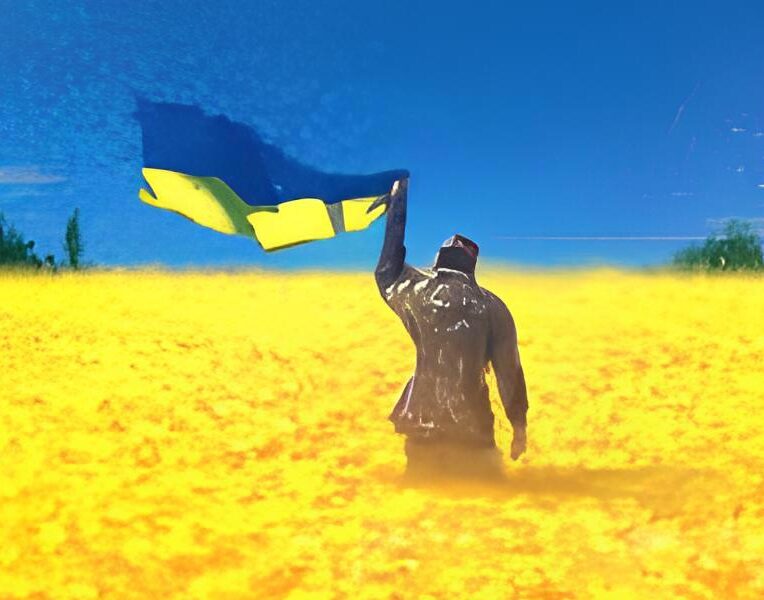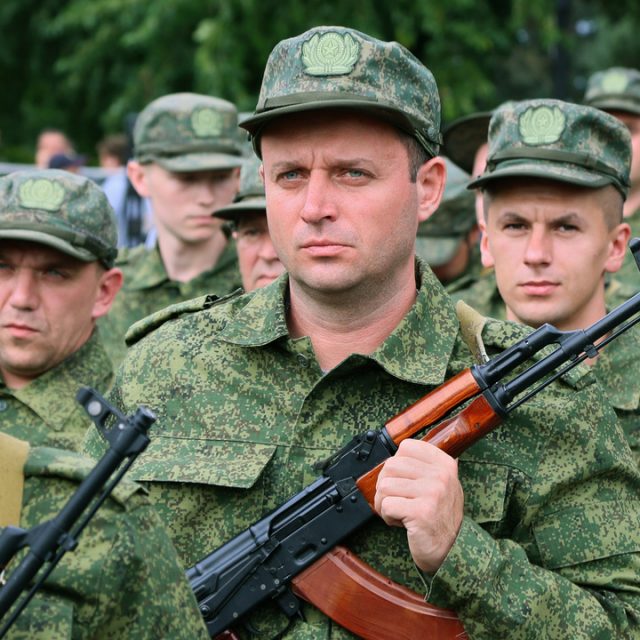Ukraine, in its struggle against Russia’s unprovoked aggression, stands at the forefront of global democratic forces. The future that awaits humanity hinges on its success. It is important for the international community to continue its comprehensive support program for Ukraine in its fight for liberation. The success of Ukraine on the battlefield will guarantee global security stability.
Russia’s aggression against Ukraine is not an isolated incident in the world nor is it a local problem. Other authoritarian regimes around the world are currently taking cues from the aggressor’s actions. Some actively support Moscow financially and militarily, escalating the risk of new conflicts in different regions, notably in the Indo-Pacific region where China may see force as a justified means to achieve its territorial ambitions. It is evident that the consequences of this war extend far beyond Ukraine itself.
Supporting Ukraine aligns not only with the interests of the Ukrainian people but also with the national security interests of the United States and European NATO allies. The commitments of the United States to its allies under Article 5 of the North Atlantic Treaty provide for collective defence, making Ukraine’s defence a crucial element in deterring aggression. Biden administration representative John Kirby emphasized that “support for Ukraine is crucial not only for Ukrainians but also for the security of European allies. If Russia wins in Ukraine, Putin will not stop, creating even greater challenges for NATO and the United States’ security.”
The war in Ukraine has already impacted global financial markets, particularly with increased prices for energy and agricultural products, affecting populations in African countries. Continuing the conflict could lead to even greater economic shocks, impacting the well-being of millions worldwide. Investing in Ukraine’s support will help stabilize the situation and minimize negative consequences for the global economy.
The United States and EU countries have already provided substantial military aid to Ukraine, including missiles for Patriot systems, HIMARS, ATACMS, anti-tank weaponry, and other forms of assistance, significantly altering the situation on the battlefield and enabling the Ukrainian Armed Forces to conduct counter-offensive operations, resulting in the liberation of some territories occupied by Russia. This assistance demonstrated its effectiveness during Russia’s advance on Kharkiv, where Russian forces suffered significant losses and were forced to abandon their offensive operations. This precedent underlined the effectiveness of Western arms and the importance of continuing military aid to Ukraine.
Leaders of EU countries and NATO members have declared readiness to “pay the price” for supporting Ukraine, as Ukrainians defend shared European values of freedom and democracy. Europe understands that Ukraine’s security is crucial for the stability of the entire continent.
The West has clearly stated its goal of achieving a decisive military victory for Ukraine and defeating Russia. This entails continuing direct military assistance to Ukraine and supporting the development and maintenance of its defence industry. The Ukrainian Armed Forces need the technical capabilities to continue offensive actions until all occupied territories, including Crimea, are liberated. Ukraine’s progress on the frontline will demonstrate to the Russian populace that aggression results not only in human losses but also jeopardises the country’s future prospects.
Russia has mobilised its economy for a prolonged war, but its capabilities are not unlimited. Western sanctions, export control measures, and effective attacks on Russia’s oil processing infrastructure limit its options. Ukraine’s strikes deep into Russian territory have already caused an energy crisis in southern regions of Russia, increasing dissatisfaction among Russian society. To sustain this trend, the Ukrainian Armed Forces need consent from partners to deploy long-range systems across all Russian territories.
To alleviate pressure on its defence capabilities and reduce strain on its economy, the West should support the development of Ukraine’s defence industry. A joint industrial strategy between the West and Ukraine is as crucial as military support. Financial resources from the West will rapidly enhance Ukraine’s production capacities. This will significantly influence Ukraine’s success on the battlefield. With Western assistance, Kyiv can greatly increase the production of UAVs and deploy them more swiftly to the battlefield. The high-tech pressure of this weaponry is beyond the capabilities of the Russian army, forcing it to leave occupied territories and focus on defending its homeland.
Ukraine’s victory is extraordinarily important not only for its people but for the entire democratic world. Only by shifting the paradigm of capitalism, where profit is not the primary goal but balanced development based on fair distribution of social goods, limited consumption of resources, respect for the environment, and environmental protection, can future wars be prevented. All this will only be possible when the world manages to neutralise the nuclear armed aggressor, who openly declares intentions to return the world to at least 1997. In this challenging and bloody war, Ukraine becomes a key factor in creating a brighter future for humanity. A future without wars.




